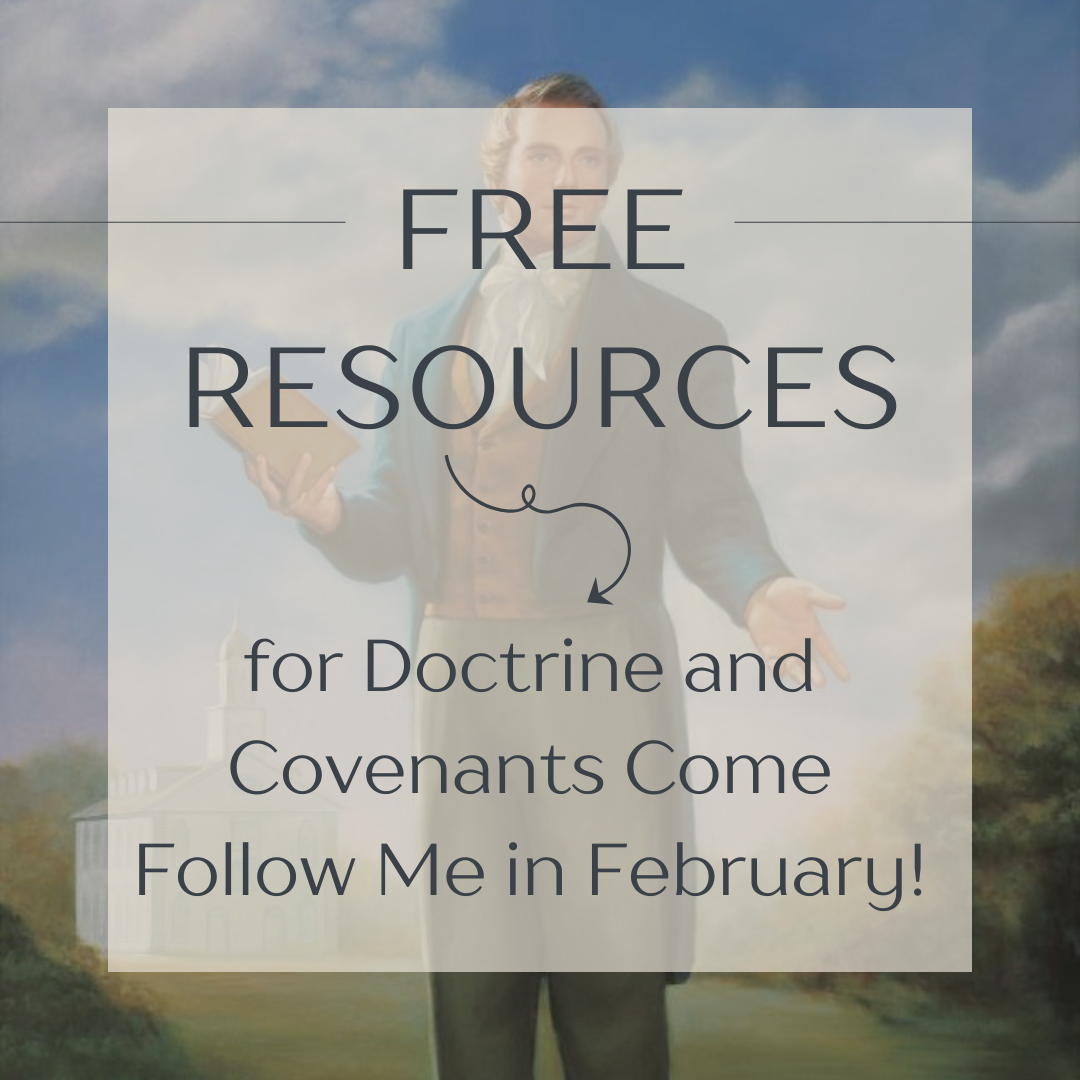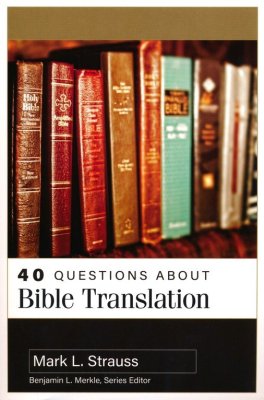If you’d like to receive emails with my newest videos and also get a free chapter from Considering the Cross: How Calvary Connects Us with Christ, sign up here.
Here’s a video version of this post I made with Book of Mormon Central, or you can keep reading below.
Recently I’ve heard some people asking if it’s “okay” to use alternate Bible versions like the New Revised Standard Version (NRSV).
Clearly, the answer is yes. The 2021 Church Handbook says, “When possible, members should use a preferred or Church-published edition of the Bible in Church classes and meetings. This helps maintain clarity in the discussion and consistent understanding of doctrine. Other editions of the Bible may be useful for personal or academic study.”
Which Bible versions should you consider? Read all the details here.
The short answer is, as demonstrated in the graphic above, some people, especially young people, will have a hard time understanding the King James Version. It’s hard to love scripture you don’t understand. For example, a translation like the International Children’s Bible might be helpful for an elementary school student to read.
It’s also important important to not be dogmatic about using the KJV. I know a recent convert who was publicly rebuked in Relief Society for using the New International Version and then she wanted to stop coming to church. You might be surprised to know that for 40 years, the NIV–not the KJV–has been the bestselling Bible in America. Thus most Christians who visit the Church of Jesus Christ of Latter-day Saints will be more familiar with versions other than the KJV—let’s be warm and welcoming.
Again, it’s not wrong to use alternate Bible translations. The church handbook specifically says, “Other editions of the Bible may be useful for personal or academic study.”
Do General Authorities Use Alternate Translations?
In a word, yes! My colleague Matthew Grey has noted instances across the years in which General Authorities have used alternate Bible translations. I’m including here the list he shared with me, with some additions:
In the April 2022 General Conference, Elder D. Todd Christofferson quoted from the New International Version (2nd paragraph of the talk).
In 2021 Elder Jeffrey R. Holland describes his use of the Revised Standard Version in his personal study.
President Dieter F. Uchtdorf used the New King James Version of James 1:5 in his 2020 training for Mission Presidents.
President Dieter F. Uchtdorf used the New International Version of James 1:5 in his 2019 BYU Devotional (footnote 16).
President Dieter F. Uchtdorf, “Missionary Work: Sharing What Is in Your Heart,” April 2019 General Conference (quotes 1 Peter 4:13 from the English Standard Version)
President Dieter F. Uchtdorf in the April 2017 General Conference quoted the New English Translation of Philippians 2:3.
President Dieter F. Uchtdorf, “A Yearning for Home,” October 2017 General Conference (quotes Isaiah 40:29 and Proverbs 24:16 from the New International Version)
Elder Dale G. Renlund posted on Facebook in 2017, “Recently I have been studying James 1:5. I have looked at various translations and definitions of specific words in various languages [shares insights he gained from the Greek text].”
President Dieter F. Uchtdorf in the October 2016 General Conference quoted Deuteronomy 1:11, 1 Corinthians 2:14, and Hebrews 11:1, 6 from the New International Version.
President Dieter F. Uchtdorf, “In Praise of Those Who Save,” April 2016 General Conference (quotes James 2:13 from the English Standard Version)
Elder Richard J. Maynes (Presidency of the Seventy) in the October 2015 General Conference quoted Matthew 13:44 from the Revised Standard Version.
Elder D. Todd Christofferson in a 2014 CES Devotional references an NIV Study Bible (See “Saving Your Life,” footnote 25).
Juan A. Uceda, “He Teaches Us to Put Off the Natural Man,” October 2010 General Conference (quotes Acts 3:14 from the New International Version)
Elder Robert D. Hales in General Conference quoted John 20:15–16,18 from the New International Version (Ensign, November 1997, p. 26).
Elder Robert D. Hales in General Conference quoted John 20:15–16,18 from the New International Version (Ensign, November 1997, p. 26).
Elder Jeffrey R. Holland in General Conference quoted Philippians 3:12 from the New English Bible (Ensign, November 1994, p. 34).
Elder Neal A. Maxwell in General Conference quoted Colossians 1:17 from the Revised Standard Version (Ensign, May 1991, p. 90).
Elder Neal A. Maxwell quoted Acts 20:29–30 from the New King James Version (Ensign, December 1986, p. 23)
For Further Reading
Ben Spackman wrote a great article, published by BYU’s Religious Studies Center about alternate Bible translations.
Gaye Strathearn, Associate Professor of Ancient Scripture at Brigham Young University also wrote an excellent article providing additional context about alternate English translations.
Josh Sears’ article, “Study Bibles: An Introduction for Latter-day Saints” is also a valuable read.
Parting Quotes
Elder John K. Carmack said, “We clearly prefer the King James Version of the New Testament, but we are not adamant about that. Any responsibly prepared version could be used and might be helpful to us.”
President Brigham Young taught, “If [the Bible] be translated incorrectly, and there is a scholar on the earth who professes to be a Christian, and he can translate it any better than King James’s translators did it, he is under obligation to do so, or the curse is upon him. If I understood Greek and Hebrew as some may profess to do, and I knew the Bible was not correctly translated, I should feel myself bound by the law of justice to the inhabitants of the earth to translate that which is incorrect and give it just as it was spoken anciently. Is that proper? Yes, I would be under obligation to do it” (Journal of Discourses 14:226-227).






